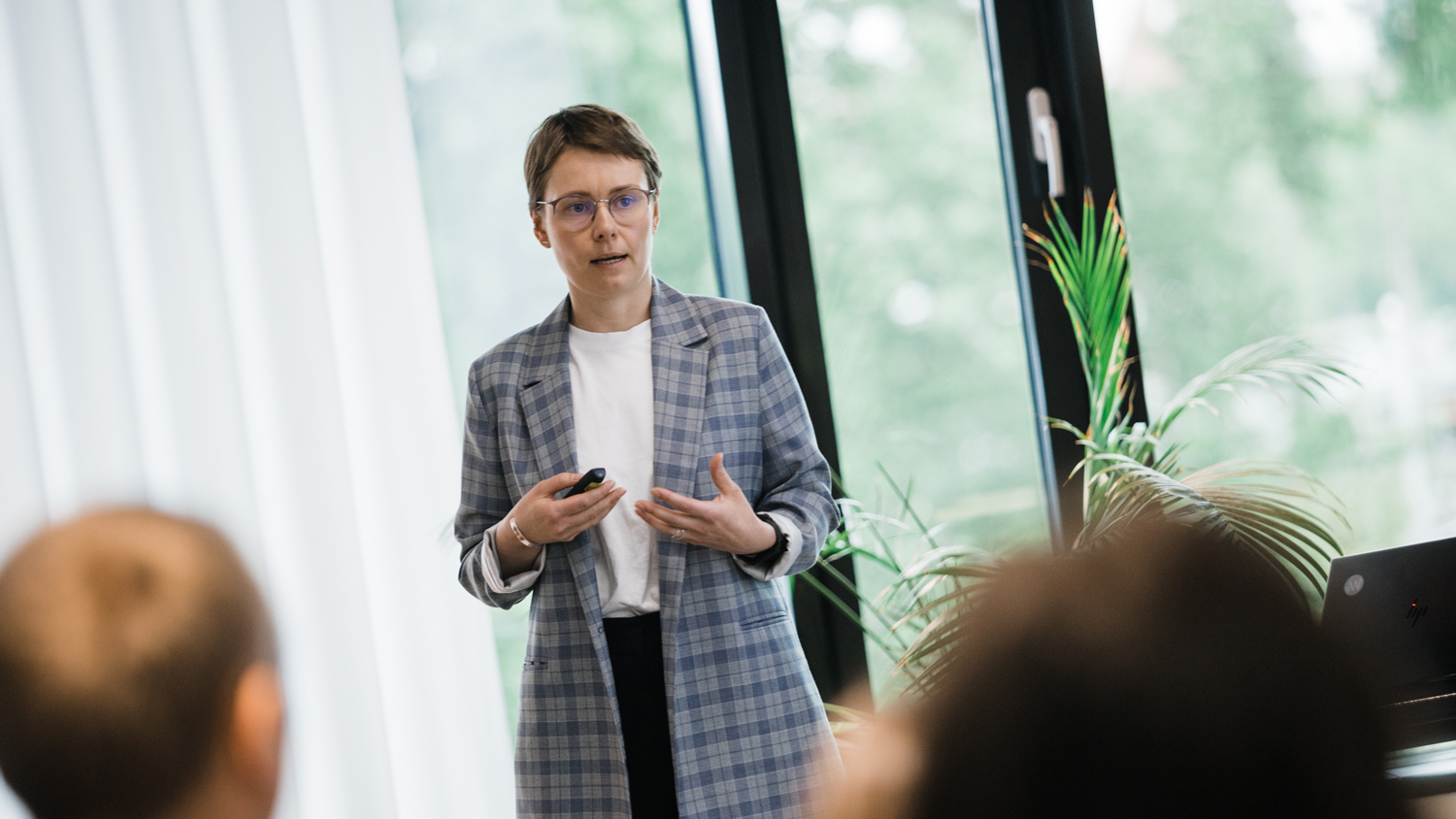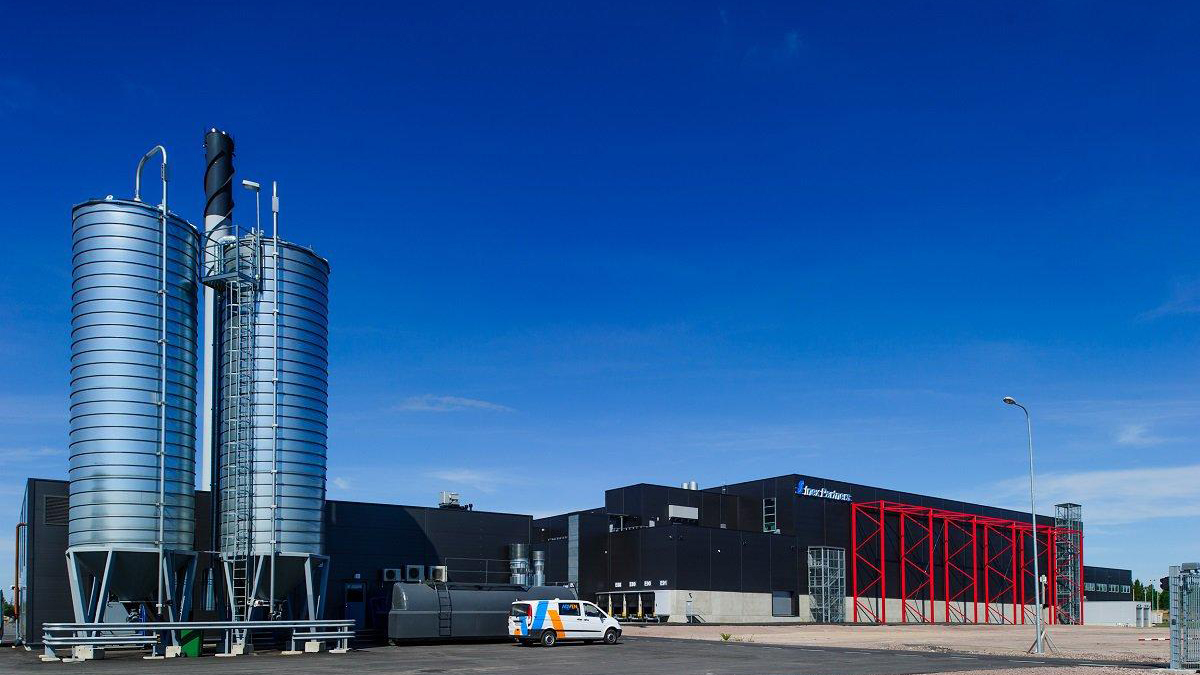Bioeconomy is changing our economy and daily lives. It’s boosting industrial competitiveness via research & development along with the enhancement and diversification of bio- and green technologies. It will subsequently transform our society, including what we eat and wear, the fuels we use, and how we shape our physical world, writes Kaie Kriiska, Sustainability Advisor from SEB business segment. SEB is also a co-organiser of Impact Day 2023.
Bioeconomy refers to all economic activity derived from bio-based products and processes that contribute to sustainable and resource-efficient solutions to the challenges humans face in food, chemicals, materials, energy production, health and environmental protection. The concept of bioeconomy extends beyond the mere substitution of fossil resources with renewable ones. It requires the integration of low-carbon energy inputs, sustainable supply chains, and new innovative and transformative technologies that can convert renewable bioresources to high-value bio-based products, materials, and fuels while making use of waste and by-products (circular bioeconomy) and implementing the cascading principle.
By optimising the use of biological resources bioeconomy is expected to make major socioeconomic contributions by improving health outcomes, and maximising the co-benefits, e.g., the production of biomass, mitigating climate change and enhancing biodiversity, while safeguarding our ecosystems.
How will the inevitable rise of bioeconomy shape our economy and daily lives?
Approximately 60% of the world’s physical inputs to the global economy could be produced biologically – about one-third of these inputs are biological materials (wood or animals bred for food), and the remaining two-thirds are nonbiological (plastics or fuels) but could potentially be produced or substituted using biological resources. According to a study by the McKinsey Global Institute (2020) the direct economic impact of biotech applications could reach up to USD 4 trillion per year over the next ten to 20 years.
In the EU, the role of bioeconomy sectors in generating economic wealth has improved in the past decade – in 2020 EU bioeconomy sectors’ turnover jumped over EUR 2 trillion, created EUR 665 billion of value added and employed 17.2 million people (European Commission). The European Green Deal will bring further important structural changes in the economy – increasing industrial competitiveness via research & development along with the enhancement and diversification of bio- and green technology sector is expected, that subsequently will transform the society, including what we eat and wear, the fuels we use, and how we shape our physical world.
Below are just a few examples how innovative greentech companies use novel biotechnological processes, valorise biomass and their side streams to high-value products, and contribute to sustainable economy from food sector to medicine by reducing waste, the use of non-renewable resources and greenhouse gas emissions while protecting biodiversity:
- Iceland Ocean Cluster – a network of 65 companies, also known as the Silicon Valley of whitefish – is generating more revenue from a smaller volume of caught fish by using over 90% of the fish waste to make new products. Meanwhile, only 65% of fish captured globally reach our plate, while the rest is wasted and intentionally dumped (FAO). The products of the Iceland Ocean Cluster range from cod liver oil, energy drinks, fish leather, creams and cosmetics from enzymes, dog snacks and weight-management supplements to skin grafts with cod skin for people with burns. Interestingly, fish skin grafts are shown to be more efficient in comparison to alternative wound healing techniques (Ibrahim et al., 2023).
- Oumph! is a Swedish brand that is making high-protein and high-fibre meat alternatives using soybeans as their main ingredient. Plant-based ingredients are more sustainable source of protein compared to animal-based proteins, require less land, water, and resources to produce, making them a more environmentally friendly choice. Plant-based food has been named one of the biggest megatrends in the food sector, which was confirmed by Oumph!’s sales increase of 400% in 2020. The brand is catching not only vegetarians but appeals to flexitarian consumer as well with its award-winning tasty products. The company wants to stand out from regular meat alternative brands and has taken bold steps to convince meat-lovers to try their products, e.g. the Human Meat campaign launched during Halloween with a burger that allegedly tastes just like human flesh.
- Piliis a French biotech startup that has raised over EUR 30 million to develop and produce renewable dyes and pigments for the textile industry which traditionally is one of the most polluting industries in the world. Today, 99% of colors are produced with carbon-intensive fossil resources – each kilogram of regular dye requires 100 kg of heavy oil, uses 10 kg of toxic chemicals and 1000 L of water (Pili), which is why the textile production is estimated to be responsible for about 20% of global clean water pollution contributing to the destruction of fragile ecosystems (European Parliament, 2020). Pili produces long-lasting pigments that are compatible with the fashion industry practices using microbial fermentation by transforming renewable carbon feedstocks, such as sugar into dyes with the help of engineered enzymes. Their bio-based indigo, for example, uses no petrol or chemicals, necessities 5 times less water and cuts CO2 emissions by 50% compared to traditional dye.
Greentech companies are rapidly altering the competitive landscape and are catalyst for a systemic change.
At the same time, they are inherently more complex, require efficient collaboration with researchers and entrepreneurs, and demand greater interdisciplinarity than traditional businesses. Therefore, greentech companies are facing plenty of challenges, however the examples above and the increasing number of successful emerging bioeconomy startups are paving the way for a more balanced economy.




